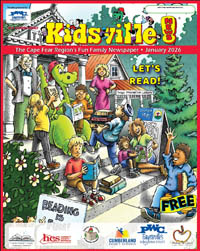 In the olden days, we used to call it “the press,” and with good reason. Our news came to us in printed form, produced by real printing presses. In the early 20th century, radio made its debut as a news vehicle, followed mid-century by traditional television networks. In most cases over the last century or so, writers and broadcasters strived for objectivity and accuracy in presentation of our news, some with more success than others.
In the olden days, we used to call it “the press,” and with good reason. Our news came to us in printed form, produced by real printing presses. In the early 20th century, radio made its debut as a news vehicle, followed mid-century by traditional television networks. In most cases over the last century or so, writers and broadcasters strived for objectivity and accuracy in presentation of our news, some with more success than others.
I come from this tradition, my first job other than babysitting being as a very junior reporter at our family’s radio business. My boss, Jeff Thompson, whose excellent reporting you also find in Up & Coming Weekly, assigned me to check the police and sheriff departments’ blotters of criminal charges — yes, such paper records were actually kept in those days—early every morning. So excited was I one day to find a charge involving two men at the bus station, that my young and naïve self rushed back to the office to tell Jeff. He, a man of the world compared to my teenaged worldview, promptly and directly told me what “crime against nature” actually means. I eventually got over my humiliation, and to this day, Jeff calls me “Scoop” and I call him “Boss.”
But I digress.
The New Year brings us much conversation about what constitutes news, and the organizations that deliver it are now referred to as “the media.” This term includes outlets from the venerable New York Times to shadowy internet sites that come and go anonymously. Our president-elect is getting a big dose of this confusion.
Obviously, not all outlets are created equal. Some, like the Times, pride themselves on objectivity and accuracy and are widely trusted. Others do not give a flip, and some knowingly disseminate untruths, what we now call “fake news.” Sometimes the differences between real and fake are glaring, but sometimes they are not, and many of us are sucked into believing information that is simply not true.
Fake news seems to me an outgrowth, in part, of the increasingly segmented news market, or niche news. In the olden days, we read our local newspapers and listened to or watched the few existing broadcast networks. There was no cable and satellite service, much less internet, and we were basically getting the same information, whatever its source. The rise of unlimited outlets gives us unlimited choices, and many of us choose “news” that suits us, with which we agree.
For example, conservatives flock to Fox News while liberals favor MSNBC, both networks with clear political slants. In other words, we pick the “news” we want to hear and ignore the “news” we dislike. During the presidential campaign, Fox told us all things negative about Hillary Clinton and the Democrats, while MSNBC slammed The Donald and his unusual hairdo. The result of all this is that many of us are simply reinforcing what we already believe. We are not learning or processing new information to help us understand the world around us or to make informed decisions.
Ignorance may be bliss, but it is not good for our democracy or our collective life as a nation. It has fostered great division among us, as all the world learned during campaign 2016, and which dogs us as a new president takes office. Our isolation in the information we take in makes us a less informed people, which means we are less equipped to operate in and deal with our increasingly complex world.
I can feel some of you rolling your eyes and telegraphing me that all media outlets have some sort of slant, which I concede. The New York Times takes liberal/Democratic editorial stances, just as the Wall Street Journal leans conservative/Republican in its editorial positions. Both, however, make every effort to present news factually so that readers can form their own opinions, as do thousands of other media outlets both in our nation and around the world, including internet sites. Even more do not, with some simply careless and others willingly false or partisan or both.
The challenge for us as citizens and news consumers is to take in not only news that suits our own opinions but news that does not. Think of this as a variation of the old saw, “keep your friends close and your enemies closer.” How can we be conscientious and productive citizens of our great democracy — still the envy of the rest of the world — if we do not know what other people, our fellow citizens, understand and believe?
Perhaps we can think of this challenge as a New Year’s resolution to turning not only our flabby bodies but our flabby minds into tip-top news consuming and analytic machines.
Boss, you taught me well — and thanks!

 How to resolve AdBlock issue?
How to resolve AdBlock issue? 








